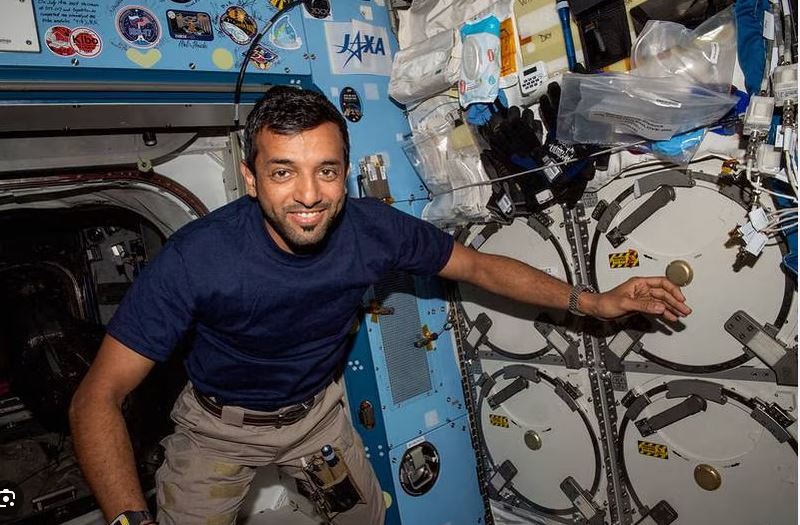“Everything felt incredibly heavy. I was the last to exit the capsule and didn’t realize I was unstrapped until the recovery teams began pulling me. It was my own weight pressing me into the seat,” shared Dr. Al Neyadi during the media session.

He also mentioned during the conference that when offered a bottle of water, it felt weighty, so he refrained from drinking it to avoid excessive movement. Although he experienced discomfort, he acknowledged that his body was beginning to recover.
According to Dr. Al Neyadi, “It’s astonishing how rapidly one can improve; it happens by the hour. You start by moving your arms, then you stand and move your legs. It’s astounding how swiftly the recovery process begins… It’s not easy; you might face some difficulty walking, or even experience motion sickness.”

When questioned about the possibility of a future mission, he expressed his desire to return to space, humbled by the experience he had. AlNeyadi also underscored the critical role played by the recovery teams, flight surgeons, and rehabilitation facilities in aiding astronauts in their swift return to normalcy.
“People might see four astronauts going to space, but honestly, this wouldn’t be possible without the support of family and friends, and the ground teams comprised of thousands of individuals working tirelessly to make this mission feasible. Throughout the six months, we might work in the morning and then rest, but there are people working around the clock to make this endeavor a reality and to facilitate all the scientific work.”
He emphasized that the UAE’s space program is “ongoing” and that the mission is still in progress.
“My mission is a continuation of the space program that began with my colleague Hazza AlMansouri… We have astronauts currently undergoing training, and they will complete their training next year.”

